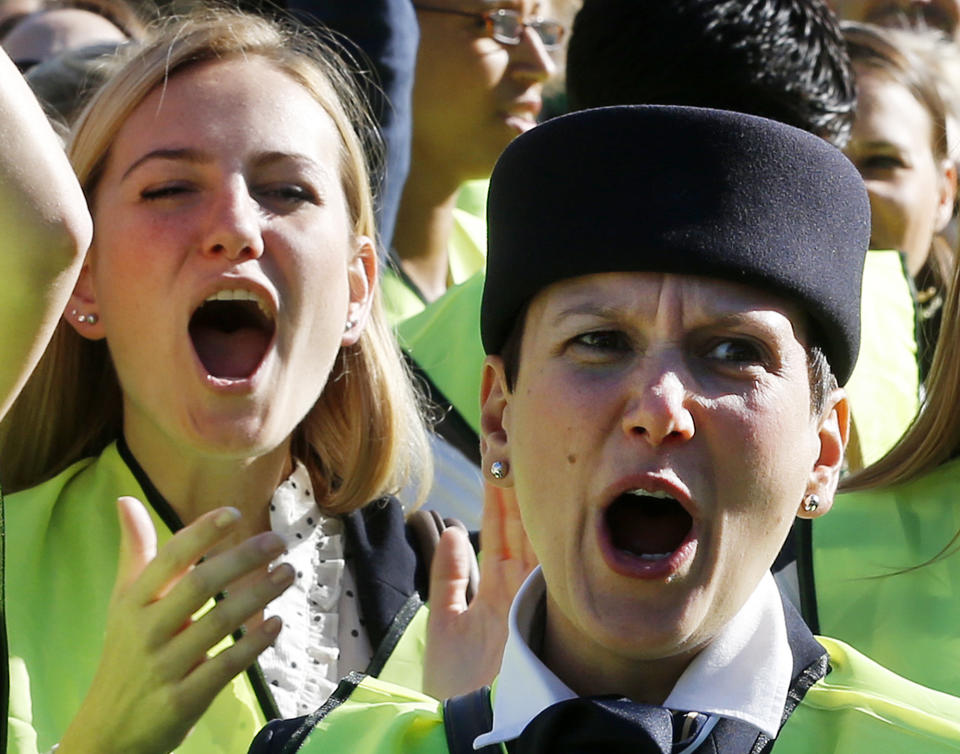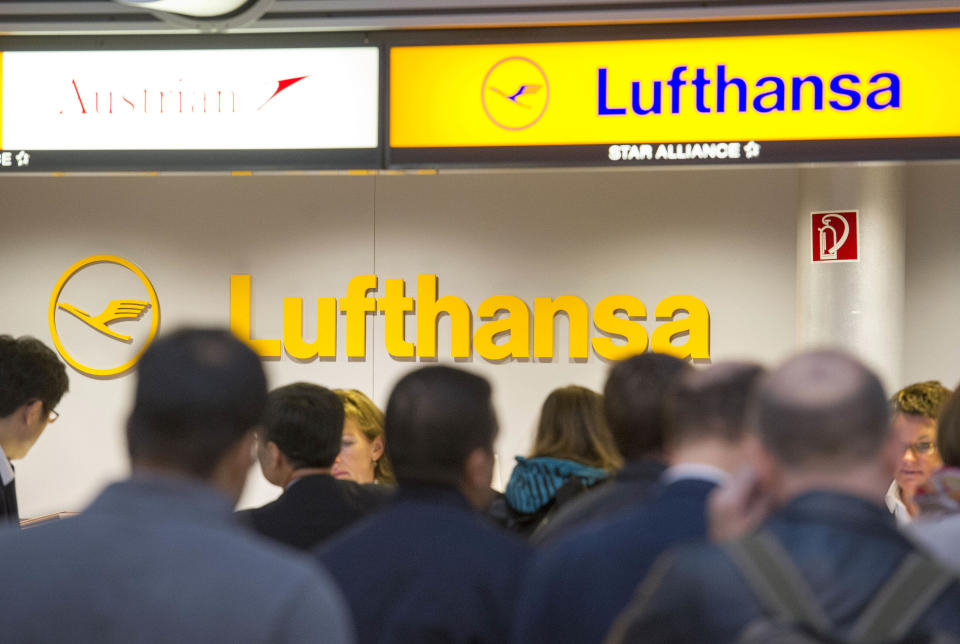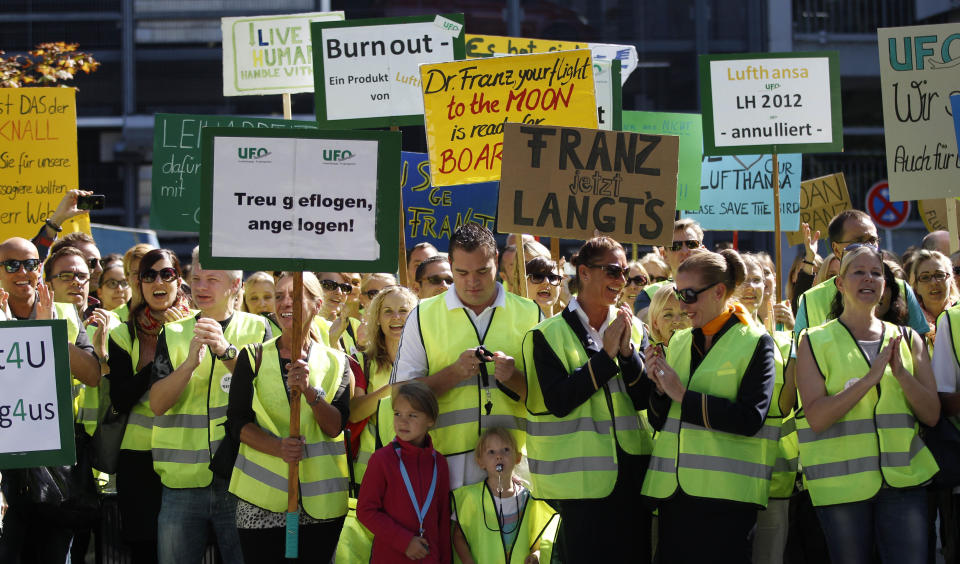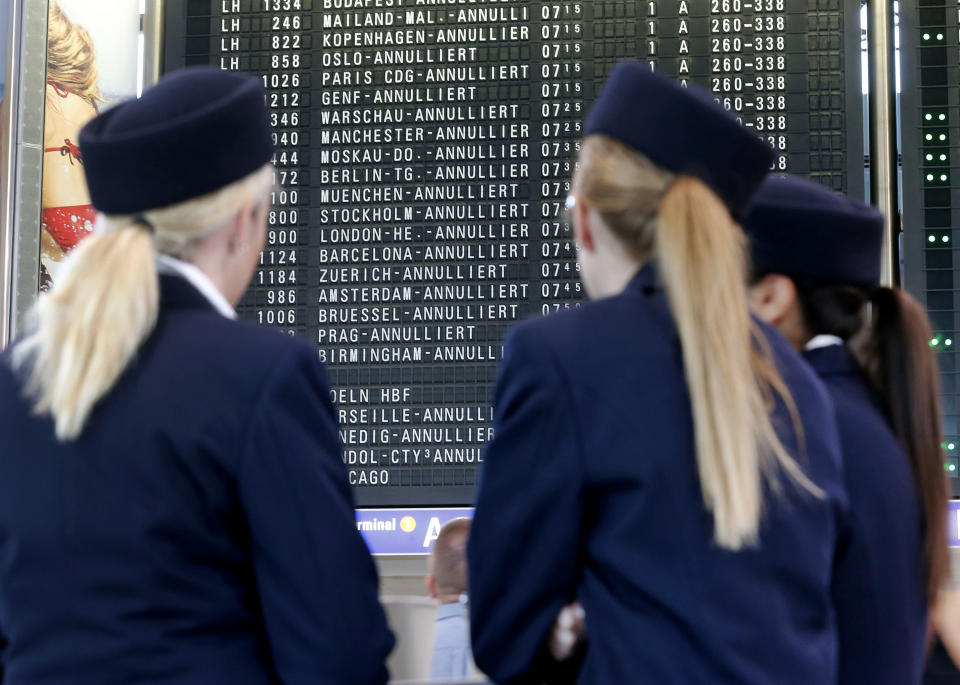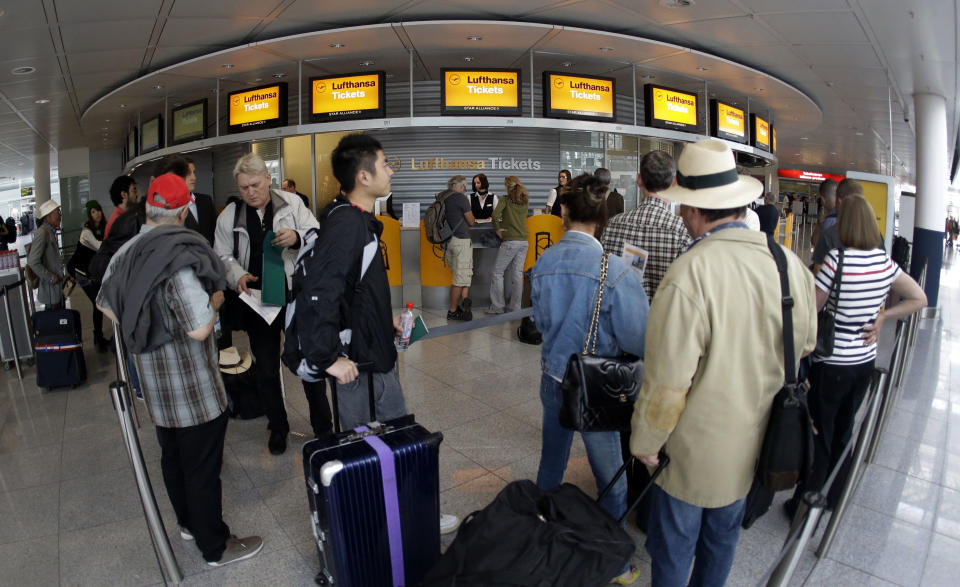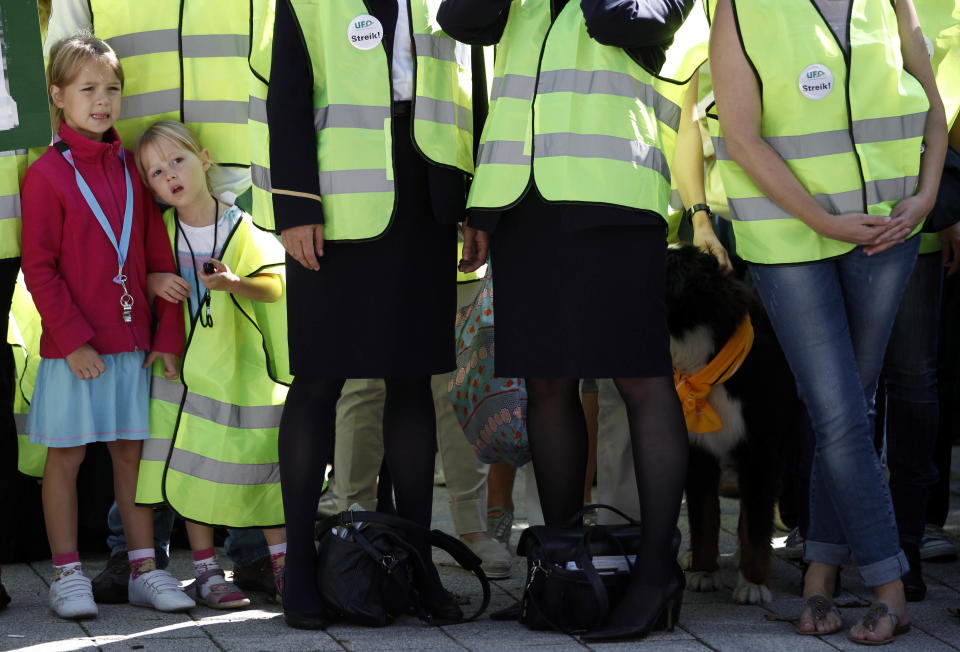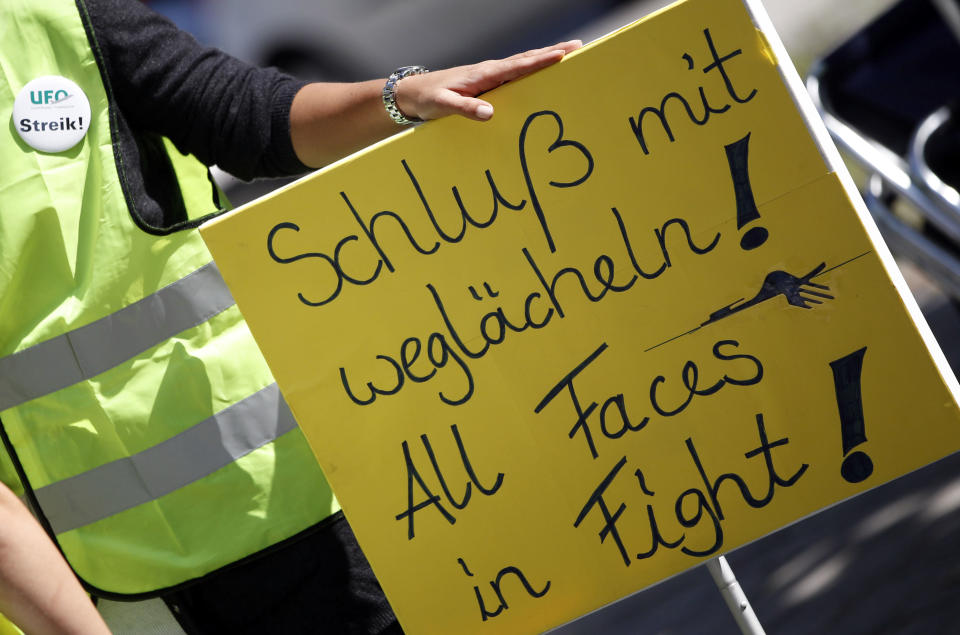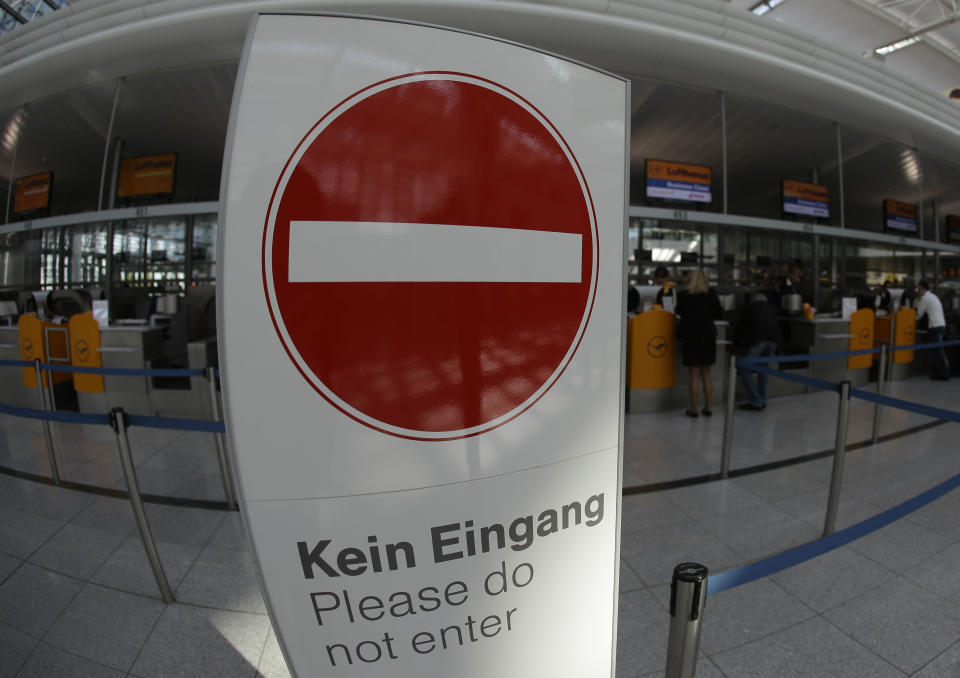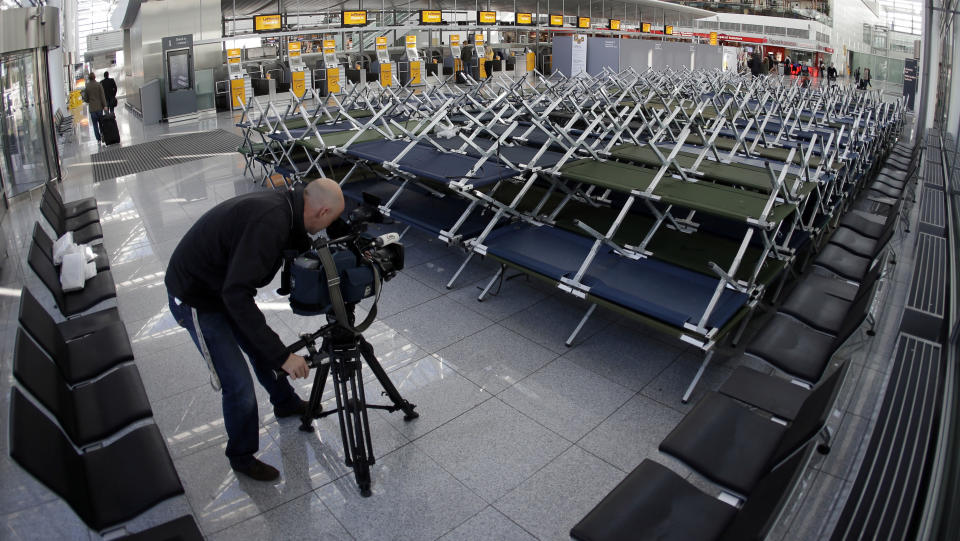Lufthansa, cabin crew take dispute to arbitration
BERLIN (AP) — Germany's Lufthansa and a union representing cabin crews agreed Friday to take their bitter pay dispute to arbitration after flight attendants walked off the job at airports around the country, forcing the airline to cancel hundreds of flights.
The flight attendants started their 24-hour walkout at midnight Thursday in a battle with the airline, which is struggling to compete against European budget carriers and government-owned airlines from the Persian Gulf.
The strike was the most extensive of three work stoppages over the past week after 13 months of contract negotiations between Lufthansa and the UFO union broke down over differences on pay, and union demands that the airline agree not to outsource jobs or employ temporary cabin crew employees.
Late Friday, the two sides moved to turn down the heat in the dispute. They agreed to launch an arbitration process — a move that will put any further strikes on hold from Saturday until both sides have decided whether to accept or reject the result, Lufthansa said.
Lufthansa and UFO aim to agree by the end of next week who the arbitrator will be, the airline added in a statement.
The two sides already had appeared to be edging back to the negotiating table. UFO chairman Nicoley Baublies said earlier Friday that he had talked with Lufthansa during the night, and the union was not going to stage any more strikes immediately — offering a "pause for Lufthansa to think things over."
A few hours later, Lufthansa publicly offered a concession. It said that it would stop using flight attendants on outside contracts in Berlin — one thing UFO has objected to — and would offer those attendants Lufthansa staff status next year.
CEO Christoph Franz said that was "a big step" and that he hoped it would help the union to enter "constructive talks."
Limited walkouts Tuesday at airports in Frankfurt, Munich and Berlin followed the launch of the flight attendants' strike campaign last Friday. The latest stoppage involved crews at all German airports Lufthansa serves.
Lufthansa spokeswoman Claudia Lange said the airline had to cancel "about half" of its 1,800 planned daily flights because of the strike — fewer than initially expected.
While the earlier walkouts were called with only six hours' notice, causing huge lineups and chaos at the airport terminals, Lufthansa had longer to prepare for Friday's strike.
It canceled flights well in advance and the scene at the airports was calmer than on previous strike days. Nonetheless, some passengers did have to deal with delays, cancellations and other inconveniences.
"I managed to get from Istanbul to Berlin and I was told I might have to stay overnight in Berlin," said Matt Haze at the capital's Tegel airport, who was on his way home to Calgary. "But luckily at the Lufthansa desk over there they found me something on Air Berlin, so they are going to get me back to Canada today."
The union is demanding a 5 percent pay raise for more than 18,000 cabin staff. Lufthansa is offering a 3.5 percent boost and is calling for a slight increase in working hours.
"We are highly motivated because we are all very angry," said flight attendant Karin Puttgereit. "This is really the first time we, the cabin crews, are on strike."
Lufthansa is trying to implement a far-reaching cost-cutting reduction program to cope with rising fuel prices as well as vigorous competition from European discount carriers and the big Gulf airlines such as Emirates, Qatar Airways and Etihad Airways. The Gulf giants are challenging Lufthansa and other major European carriers, especially in lucrative routes between Europe and East Asia.
Lufthansa aims to improve the company's operating profit by €1.5 billion (1.9 billion) compared to 2011 by the end of 2014.
The union objects to what it says would be only gradual pay increases and lower salaries for new employees. The union is also worried about the possibility that Lufthansa will transfer flight attendants to its partner budget airlines with lower contracts.
___
Christoph Noelting in Frankfurt; Geir Moulson, Robert H. Reid and Jona Kallgren in Berlin contributed to this report.
